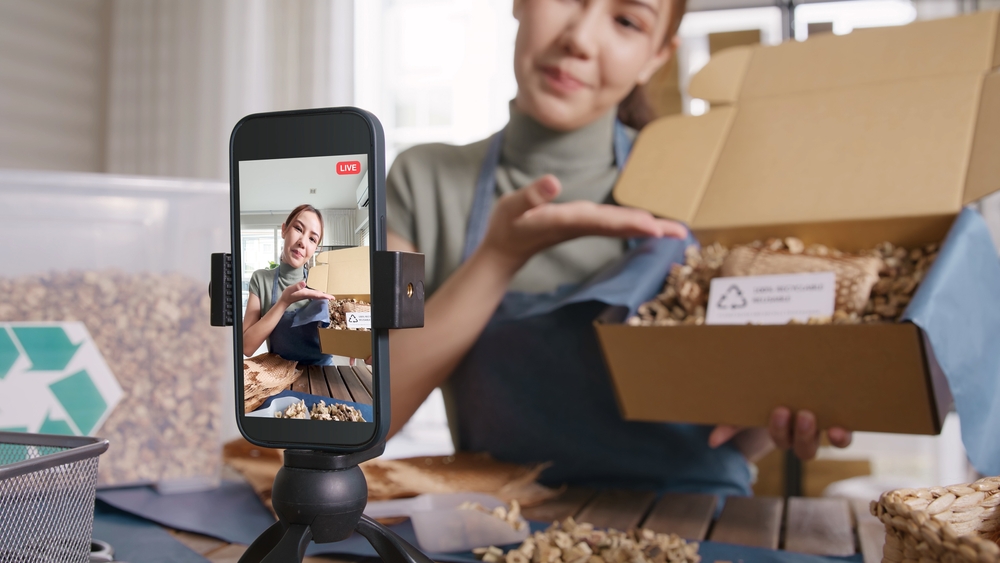Introduction
Influencer marketing has evolved from a trendy buzzword into a tried-and-true strategy that delivers authentic connections with target audiences. However, the modern influencer marketing landscape demands deeper insights, better data, and a more strategic approach. This is where AI (Artificial Intelligence) shines. By automating repetitive tasks, mining actionable data, and aligning brands with the most suitable creators, AI influencer marketing creates a more predictable path toward success. In this article, we will explore why influencer marketing is vital for brand reach, the challenges in finding the right influencers, and how AI-driven tools can simplify scouting, negotiations, and measuring influencer ROI.
Why Influencer Marketing Is Vital for Brand Reach
Influencer marketing managers, agency planners, and other industry professionals know firsthand how impactful the right partnership can be. When an influencer’s unique storytelling is coupled with your brand’s values, the results are often higher engagement, stronger brand recall, and genuine audience trust. Whether you are an entrepreneur juggling limited resources or part of an in-house marketing team aiming to demonstrate tangible ROI, influencer partnerships can offer measurable gains in brand exposure and conversions.
Here are some core reasons influencers remain a pivotal part of the modern marketing mix:
- Authentic Connection: Audiences tend to trust influencer endorsements more than traditional ads.
- Precise Audience Targeting: Many influencers cater to niche demographics, allowing marketers to reach very specific consumer segments.
- Scalable Strategy: With the right collaborations, you can simultaneously boost brand awareness and revenue.
- Flexible Formats: Influencers create content across social media, blogs, podcasts, and more, diversifying a brand’s reach.
The Complexity of Finding the Right Influencers
Despite these benefits, pinpointing the ideal influencer is no small task. Manual research often involves combing through social media profiles, analyzing follower counts, and trying to gauge the creator’s style by scanning past content. Even after spending hours (or days) in research mode, you may still be left guessing if the influencer’s audience truly aligns with your brand values and campaign objectives.
Key challenges include:
- Identifying Authentic Engagement: High follower counts can be deceiving if an audience is not genuinely interested.
- Verifying Brand-Influencer Alignment: Values, tone, and creative direction can differ greatly if not carefully vetted.
- Navigating Platform-Specific Niches: Some influencers thrive on Instagram with visuals, while others flourish on YouTube with extended video content.
- Limited Time and Resources: Entrepreneurs or solo marketers might not have the bandwidth to manually vet dozens of potential collaborators.
AI-Driven Discovery and Vetting
This is where AI-driven influencer discovery tools fundamentally change the game. By leveraging advanced data analytics and machine learning algorithms, AI can automate large portions of the scouting process. Instead of sifting through profiles one by one, AI platforms can scan massive databases to identify influencers who match a brand’s voice, style, and strategic goals. This allows marketers to allocate resources more efficiently while improving the caliber of partnerships.
Identifying Relevant Metrics
Effective AI-driven platforms go beyond basic follower counts. They look at:
- Audience Overlap: Pinpoint how much of an influencer’s community aligns with your target demographic.
- Engagement Rates: Focus on likes, comments, shares, and video views to assess the influencer’s true impact.
- Demographic Breakdown: Explore age, location, and interests of the audience to ensure relevance.
- Past Content Performance: Review historical analytics to confirm the influencer’s consistency.
By pre-filtering candidates based on these metrics, you increase the odds of landing a brand match that feels both organic and results-driven.
Steps to Filter Influencer Databases
While platforms vary, the following steps typically help streamline the research phase for influencer marketing managers and agency planners:
- Define Campaign Objectives: Clarify the goals, target audience, and desired outcomes before starting.
- Upload or Outline Brand Guidelines: AI tools can use these to filter out profiles that diverge from your brand’s voice and aesthetic.
- Apply Advanced Filters: Search by location, interests, engagement metrics, or platform type to narrow down possibilities.
- Analyze Engagement Patterns: Look for consistent, positive engagement rather than sudden spikes.
- Shortlist and Conduct a Final Review: Keep the strongest candidates, then manually double-check their content and reputation.
Negotiation and Collaboration
After shortlisting influencers, the next major hurdle is negotiation. This phase requires clarity around brand values, content expectations, deliverables, and budget. Whether you are a marketing agency balancing multiple client briefs or a solo freelancer wanting to expand offerings, transparent negotiation helps ensure brand-influencer alignment.
Ensuring Brand Alignment
Many marketers have had the frustrating experience of securing an influencer whose style later clashed with brand ethics or positioning. AI can mitigate this risk by continuing to monitor social feeds and historical posts for alignment signals, such as the influencer’s language style, creative format, and brand endorsements. While AI streamlines the preliminary research, a human touch in final vetting remains essential to confirm that both parties share complementary values and aesthetics.
Setting Data-Oriented Goals
Data-based goal setting encourages transparency and accountability for both the brand and the influencer. Consider setting KPIs around:
- Engagement Rate: The percentage of audience actions (likes, shares, comments).
- Conversions: Click-through rates or direct product sales resulting from the influencer’s content.
- Brand Lift: Changes in brand perception or recognition before and after a collaboration.
- Sentiment Analysis: Whether the influencer’s content generates positive conversation about your brand.
An AI-powered platform can help monitor these metrics in real time, enabling you to make swift adjustments if a campaign underperforms.
Measuring Impact with AI
Tracking and measuring influencer ROI is frequently the biggest challenge for marketers. Traditional methods might involve using manual spreadsheets or isolated analytics tools that fail to offer a holistic view. AI platforms, on the other hand, can integrate multiple data points, from social engagements to conversion analytics, to provide a more unified perspective.
Tracking Conversions, Brand Lift, and Sentiment
- Conversions: AI-driven analytics capture both direct and assisted conversions. This is crucial because an influencer’s post may introduce your brand to new followers who only convert weeks or months later.
- Brand Lift: Monitor how audiences perceive your brand by analyzing search volume increases, mentions, and social media sentiment.
- Sentiment Analysis: AI tools can scan comments, reviews, and mentions across platforms, helping you gauge whether an influencer partnership positively influences how audiences talk about your brand.
Using Real-Time Analytics to Optimize Campaigns
Ongoing optimization separates good influencer initiatives from game-changing ones. Instead of waiting until the end of a campaign, marketing teams can make incremental modifications while the campaign is live. AI dashboards that track and visualize data in real time can reveal patterns in audience engagement, geographic reach, and user behavior, allowing you to halt underperforming collaborations early and reallocate resources to more promising efforts.
Different Roles, Different Challenges
No two organizations approach influencer marketing with the exact same goals or constraints. Below are quick takeaways for key roles:
1. Entrepreneurs
- Struggle: Limited budgets and time constraints.
- Approach: Use AI systems to shortlist influencers rapidly, focusing on high-engagement micro-influencers who offer more authentic, cost-effective partnerships.
- Aspiration: Achieve significant growth through deep customer trust and market differentiation.
2. In-House Marketing Teams
- Struggle: Multiple campaigns, brand consistency, and tight ROI expectations.
- Approach: AI ensures cohesive brand voice across influencer content, while consolidated performance data gives stakeholders clear metrics.
- Aspiration: Quickly scale content production, maintain brand integrity, and prove ROI to leadership.
3. Marketing Agencies
- Struggle: Balancing numerous brand identities and strategies for different clients.
- Approach: AI-driven solutions provide centralized dashboards and advanced filtering to meet each client’s unique voice and objectives.
- Aspiration: Expand service offerings, maintain consistent quality, and optimize profitability.
4. Solo Marketers and Freelancers
- Struggle: Handling multiple client projects with limited capacity.
- Approach: Streamline influencer scouting with AI to free up time for strategic thinking and creativity.
- Aspiration: Position themselves as forward-thinking experts, attract high-value clients, and grow revenue sustainably.
Conclusion
Influencer marketing remains a powerful avenue for boosting brand awareness and driving sales, yet identifying and managing the right partnerships can be challenging. By leveraging AI influencer marketing tactics, from smart discovery to real-time performance analytics, brands and agencies can drastically improve both their partnership quality and measurable results. Whether you are focused on discovering fresh talent through influencer discovery tools or honing in on brand-influencer alignment to sustain long-term collaborations, an AI-driven framework helps connect the dots and optimize your investment.
As you refine your influencer marketing strategies, consider a platform that simplifies content creation and ensures your brand message is always on point. Ryv AI offers a seamless way to transform your brand knowledge into polished, on-brand marketing documents. If you want to streamline the process of influencer marketing, explore how Ryv AI’s AI-powered operating system can elevate your results without adding unnecessary overhead.




